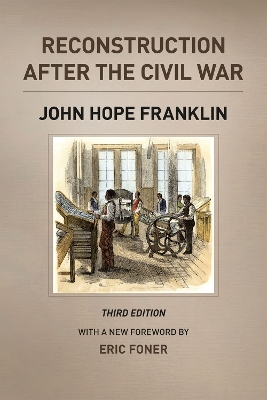Chicago History of American Civilization CHAC (CHUP)
1 total work
In 1957, the University of Chicago Press asked acclaimed best-selling historian Daniel J. Boorstin to oversee a series of accessible yet authoritative books that, together, would tell the whole history of the American people. The result, published over the course of nearly half a century, is the "Chicago History of American Civilization" series, which provides a nuanced and vibrant portrait of the United States from its inception through the twentieth century. Scholars across many disciplines contributed, and the series covers a broad range of topics, as disparate as the War of 1812, immigration, and American folklore. While the series is certainly eclectic, the books share both ambition and authority - they have been staples for teachers and general readers alike. The authors included in this series represent some of the greatest academic talents ever to turn their mind to the American past. Thus the University of Chicago Press is excited to offer new editions of three of the series' best-known books. "Reconstruction after the Civil War" explores the role of former slaves during this period in American history.
Looking past popular myths and controversial scholarship, John Hope Franklin uses his astute insight and careful research to provide an accurate, comprehensive portrait of the era. His arguments concerning the brevity of the North's occupation, the limited power wielded by former slaves, the influence of moderate Southerners, the flawed constitutions of the radical state governments, and the downfall of Reconstruction remain compelling today. This new edition of "Reconstruction after the Civil War" also includes a foreword by Eric Foner and a perceptive essay by Michael W. Fitzgerald.
Looking past popular myths and controversial scholarship, John Hope Franklin uses his astute insight and careful research to provide an accurate, comprehensive portrait of the era. His arguments concerning the brevity of the North's occupation, the limited power wielded by former slaves, the influence of moderate Southerners, the flawed constitutions of the radical state governments, and the downfall of Reconstruction remain compelling today. This new edition of "Reconstruction after the Civil War" also includes a foreword by Eric Foner and a perceptive essay by Michael W. Fitzgerald.
